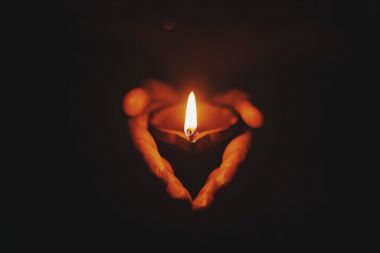When a whole-life sentence just isn't enough

Violence against women has been in the news - again. Before we've had time to process the murder of Sabina Nessa, we're reminded of Sarah Everard as her killer faces justice in the courts.
My heart goes out to her family. The details that have been revealed would haunt any parent. It's simply unimaginable. It is a small mercy that they were saved from a prolonged case by a guilty plea and there must be some relief that this man, I will not say his name, will never see the light of day again as he is sentenced to a whole life in prison. It is fitting and right that it is so.
But it doesn't bring back Sarah, it didn't stop Sabina from being killed and it doesn't make the streets safe.
It doesn't make our homes safe either. The truth is, although these killings were random, the type of violence that women are most likely to experience is domestic. Women are most likely to be hurt by people who are meant to love them. One in four women will be.
But the two things are linked. Just as they are linked to honour killings, sexual assault and harassment. They are all the behavioural branches of a tree that is rooted in misogyny - the hatred of women.
Not many people will admit to hating women, just like not many people will admit to being racist. But the reality is we're all shaped by the culture and structures that we live in.
And we live in a society, where from birth girls are treated differently to boys, often valued differently to boys, encouraged to value different things than boys. As they grow up those children will become men and women who are treated differently at school and then in the workplace. Men will be paid more than women and get more promotions, their career won't be stalled when they have children and as time goes on they will hold the financial power in their relationships.
The messages of the media will train women to please men, and teach men to feel entitled to women and their bodies. Many men will resist those lessons and have parents who teach them differently, but who nevertheless begin to accept the normality of a sexualised world where women are objectified. Ofsted told us earlier this year that there is a rape culture in our schools. That means sexual violence has been normalised - it's an expected part of the culture.
It's revolting and it needs to change and one whole life sentence, no matter how deserving it is, is not going to change it. We need a wholesale turning of the tides, a shining of light in the darkness, a revolution in respect.
There's a lot I think the government should be doing - education in schools, cracking down on the porn industry, adding misogyny to the list of hate crimes would all do for starters. But it's going to need each of us and the Church to play it's part too. We need to show a different way and start growing the next generation in a soil rich in an understanding of what it means for men and women to be created in the image of God, equal, of immeasurable worth and to be respected. The fruits of that tree would look very different indeed.
It's why at Restored we've developed a parenting webinar looking at exactly these issues - how can we raise a new generation of young people who will turn the tide and bring light into a toxic culture? We'd love to see you there.
Bekah Legg is CEO of Restored, a Christian charity supporting survivors of violence against women and empowering the Church to play its part in stamping it out for good.











